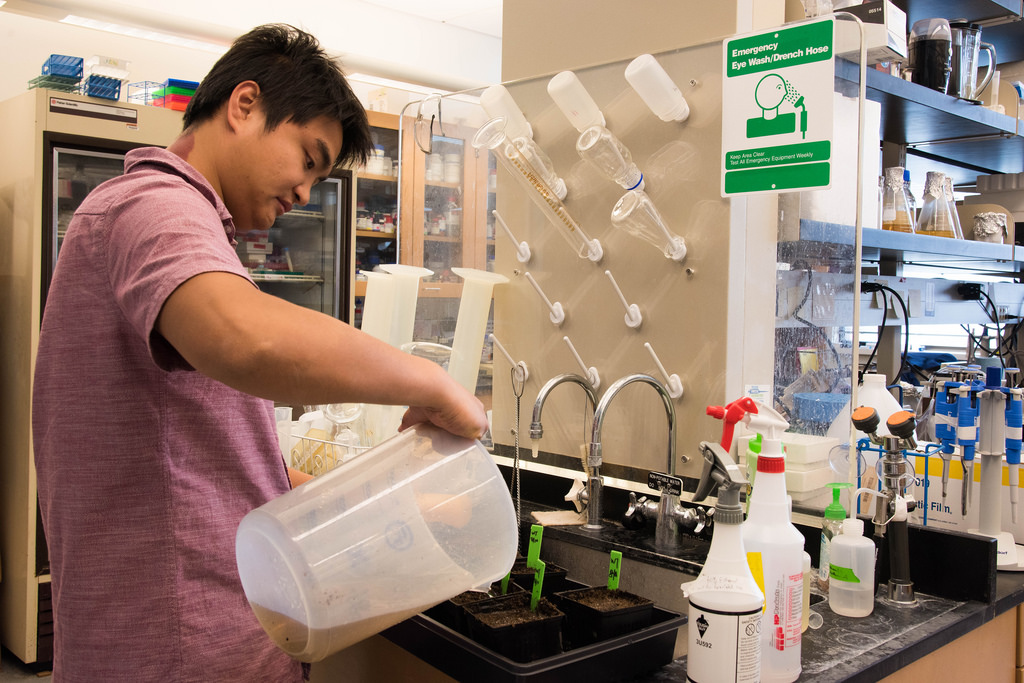
Scientists Boost Vegetable Oil Production in Plant Leaves
January 6, 2021| |
Plants synthesize fatty acids in their leaves by using light. Prof. Thelen and his team used the gene-editing tool CRISPR-Cas-9 to turn off three small proteins in Arabidopsis that restrain oil production in the leaves. This frees up the plant to produce higher amounts of triacyglycerol in its leaves instead of on its seeds. Triacyglycerol is the main component of vegetable oil.
This method could lead to greater and cheaper production of vegetable oils from leafy plants that have other agricultural uses. The possibility of dual uses for leafy crops such as soybeans could increase the protein content in its seed because of lesser production of oil in the seeds.
For more details, read the news release from the University of Missouri-Columbia and the research article in Nature Communications.
| |
You might also like:
- Scientists Identify Key Genes for Increasing Oil Content in Plant Leaves
- Oil Production Mechanism in Plants Identified
- Algal Gene Boosts Leaf Oil Content in Arabidopsis Plant
Biotech Updates is a weekly newsletter of ISAAA, a not-for-profit organization. It is distributed for free to over 22,000 subscribers worldwide to inform them about the key developments in biosciences, especially in biotechnology. Your support will help us in our mission to feed the world with knowledge. You can help by donating as little as $10.
-
See more articles:
-
News from Around the World
- ISAAA Presents 2019 Biotech Adoption Findings to Stakeholders in Europe and South America
- UBIC Builds NARO Anti-tick Vaccine Team's Capacity for Biosafety Compliance
- CIMMYT Announces Fall Armyworm Tolerant Maize Hybrids for Africa
- Researchers Find Flag Leaves Top Off Rice Photosynthetic Performance
- USDA APHIS Deregulates GE Corn with Enhanced Yield and Herbicide Tolerance Traits
- Price, Nutrition Among Top Factors that Affect Canadian Consumers' Choice to Buy GM Foods
- Scientists Boost Vegetable Oil Production in Plant Leaves
- CSIRO "Gene Sandwich" to Boost Wheat Resistance to Rust
-
Research Highlights
- Bt Cotton Key in Eradicating Destructive Pest from the US and Mexico
-
Plant
- Target-AID and CRISPR-Cas9 Improve Lycopene Content in Tomatoes
- What are TALENs?
-
Health
- Fast-spreading SARS-CoV-2 Variant in the U.K. Raises More Questions
-
Read the latest: - Biotech Updates (February 11, 2026)
- Gene Editing Supplement (January 28, 2026)
- Gene Drive Supplement (February 22, 2023)
-
Subscribe to BU: - Share
- Tweet

